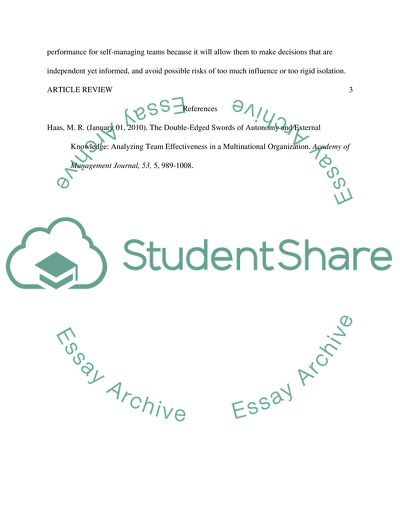Article Analysis of The Double-edged Swords of Autonomy and External Book Report/Review - 1. https://studentshare.org/management/1753355-article-reviews
Article Analysis of The Double-Edged Swords of Autonomy and External Book Report/Review - 1. https://studentshare.org/management/1753355-article-reviews.


